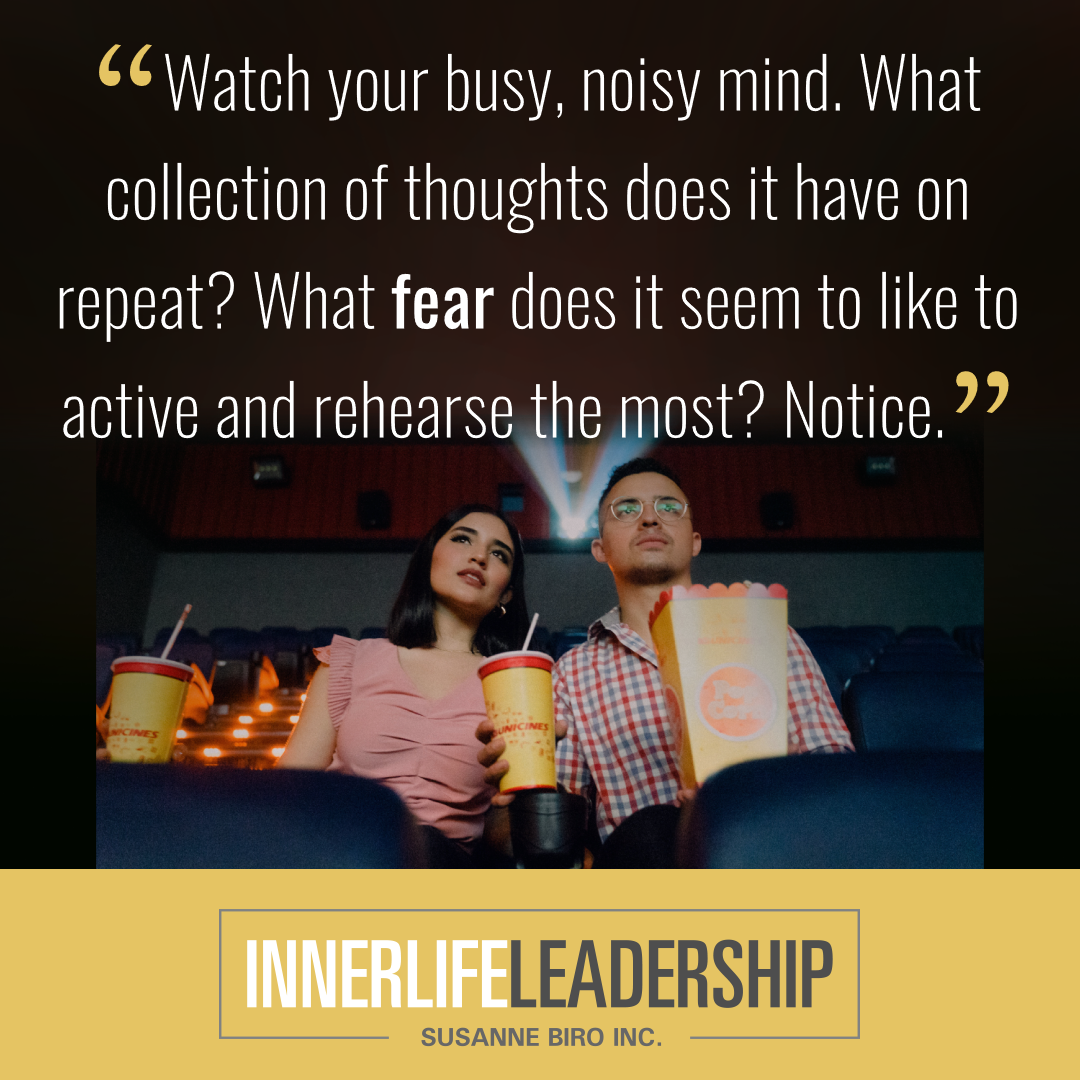The Executive Mind: A Deep Dive Into Your Inner World

As an executive leader, what is your inner world like? How has your mental landscape been shaping up recently? Is it a place of tranquility and strategic thinking, or is it a battlefield of stress, anxiety, and relentless self-criticism?
Do minor setbacks, like a single email or a brief look in the mirror, have the power to disrupt your day? Does your mind keep you awake at night, churning over decisions and strategies? If so, isn’t it intriguing that your own mind can be your biggest adversary?
Our thoughts, particularly those that are negative and fear-based, can become a repetitive loop, sometimes persisting for years. Perhaps during challenging times, such as the pandemic, you’ve questioned your ability to withstand the constant barrage of thoughts within your mind. When you allow these thoughts to consume you, you become “lost in thought.”
You may be physically present in a board meeting or strategy session, but your attention is drawn inward, often hijacked by self-critical and self-absorbed thoughts. These are thoughts that, if left unchecked, can disconnect you from reality and your team, consume your attention, and dictate your actions, outcomes, and overall experience of leadership.
For instance:
- You might be so preoccupied with your own performance, the perceptions of others, and your personal objectives during a crucial meeting that you fail to notice the needs and contributions of your team members. This self-absorption can lead to sub-optimal results.
- You may seek validation and recognition from your peers or superiors but overlook their need for the same. This one-sided focus can make your interactions draining for others, leading them to avoid future engagements with you.
Unfortunately, for many of us, our personal concerns, needs, and fears consume a significant portion of our mental bandwidth, thereby impacting our leadership effectiveness.
I say this from personal experience, as I often find my own mind preoccupied with questions such as:
- How am I perceived in this room, with these people?
- How can I advance and safeguard my reputation, my business, and everything I’ve built?
- Are others more successful or happier than I am?
- How can I ensure I don’t appear ignorant, weak or incompetent?
- How can I influence others to see me in a positive light and support my initiatives?
- Do I matter in this organization? How can I maintain my relevance?
It’s easy to get distracted, lose focus, and feel drained. Our minds can race unproductively from one worry to another, lost in anxieties and improbable scenarios. This is a common experience among leaders!
While there’s a certain humour in the universality of these concerns, the impact on our individual and collective success can be significant. It’s crucial to remember that you are not your mind. You are not your habitual thoughts and feelings. You are the one aware of them.
Observe the patterns of your mind.
Take a step back, grab some popcorn, and watch how your mind generates a constant stream of thoughts that often distract you from the present moment.
Instead of trying to suppress or control your thoughts, see if you can begin to observe them, as Eckhart Tolle suggests, as “the antics of a small child.”
How is it inside your mind?
Reflect on where your internal attention has been focused over the past week, month, or even year. Just observe, without judgment or self-criticism.
Practical Application:
- Jot down three thoughts you had this morning.
- Notice if these are recurring thoughts. Just observe.
- Read the three thoughts aloud and note how they make you feel.
This exercise is designed to bring your attention to your current mental environment.
- For instance, one of my first thoughts today was “I should be further along.” This is a thought I’ve had since my early 30s and it makes me feel anxious and inadequate.
- Another thought I had this morning was “I am lean and healthy.” This is a newer thought that I have actively fostered within myself over the last two years. This thought makes me feel good, excited, proud, and capable. Interestingly, this one thought makes me excited to eat well and exercise. Previously, I noticed I had rehearsed the thought, “I am tired” and it resulted in my eating poorly and avoiding exercise.
Before you can shift your focus to the mental environment you aspire to inhabit, it’s helpful to acknowledge and understand the mental environment you currently occupy—one that you’ve likely been rehearsing for months, if not years.
This understanding is the first step towards becoming a more self-aware and effective executive leader.
For more: www.innerlifeleadership.com
I wrote this app to serve and advance more leaders than I can possibly work with one-on-one. The app is a concise toolkit of the big ideas and tools I have taken thousands of leaders through over the last 22 years. Follow the road map I have laid out for you, it can be trusted. It might be the most important work you ever do to get everything you ever wanted: greater success, with more ease, fulfillment, joy, and peace.

